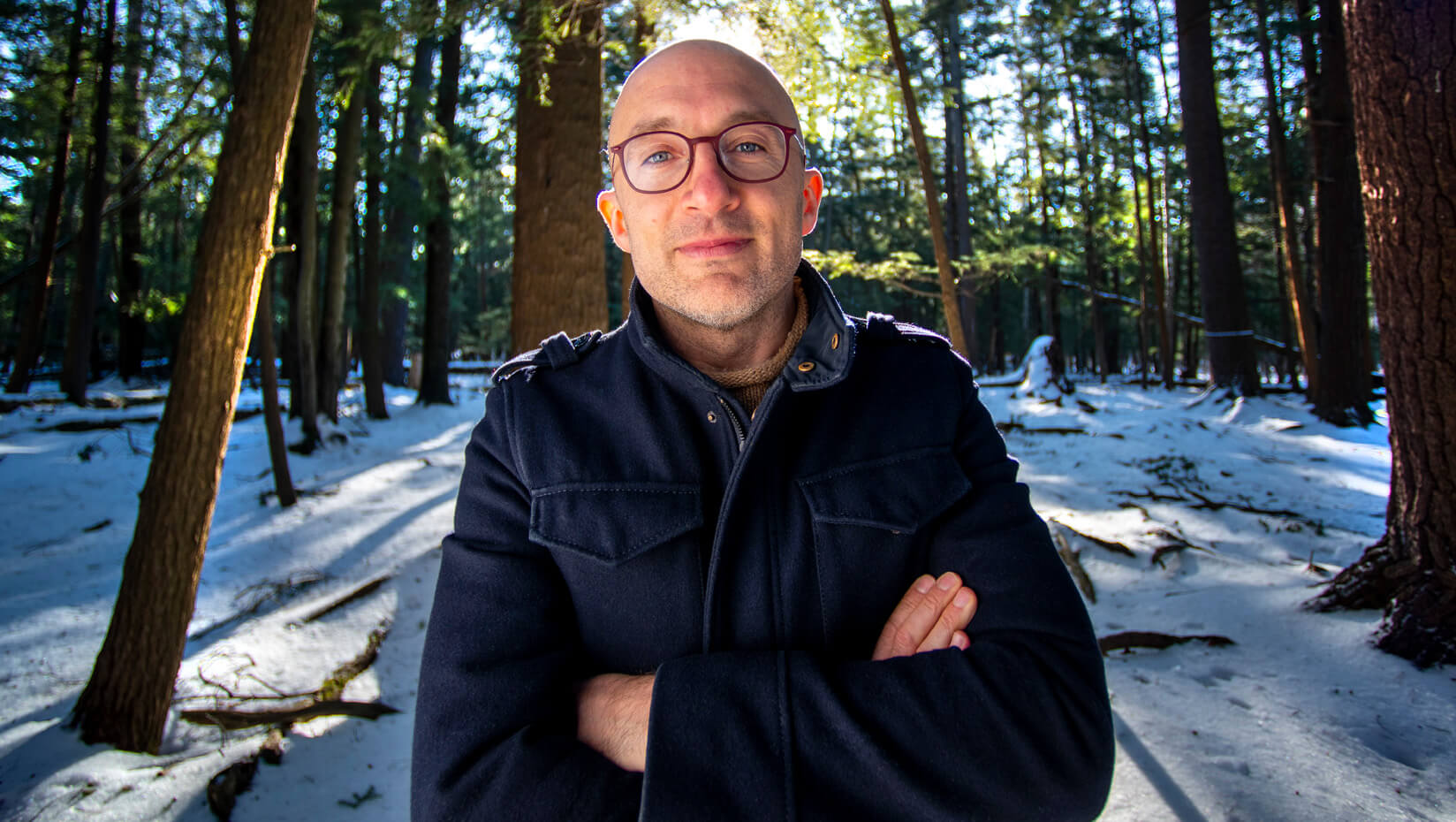
Mortelliti’s small mammal personality research funded by NSF CAREER Award
Small mammals have different personalities, just like people do — and this can influence their decisions, leading to wide-ranging impacts on the environment.
Alessio Mortelliti, University of Maine assistant professor of wildlife habitat conservation, has been awarded an $875,000 National Science Foundation (NSF) CAREER Award to study the ecosystem consequences of small animal personality.
According to Mortelliti, most classical ecological models consider all members of a population to be more or less identical. However, each individual is unique and has its own personality, and previous work by Mortelliti and his graduate students has shown, as an example, that each individual can have a differential impact on the ecosystem. He plans to focus instead on the specific traits of individuals rather than using average values for a whole species, and find out how those traits and their expressions influence population trends and ecosystem processes like forest regeneration.
Mortelliti will investigate how individual variation in personality of small mammals affects population, community and ecosystem dynamics. This individual variation also could impact the response of populations and communities to land use and climate change.
Mortelliti will recruit a team of graduate and undergraduate students, collaborators and citizen scientists. The team will assess how changes in land-use practices affect the distribution of different animal personality types, and assess the capacity of diversity in personalities to influence population dynamics, such as whether a high proportion of bold individuals in the population leads to a different dynamic than a population of mainly shy individuals.
The team also will investigate the effects of animal personality on natural storage of seeds within the soil of an ecosystem, which is a major component of forest regeneration. Different personalities will exhibit different types of behavior and decision-making related to seed consumption and dispersal, influencing forest regeneration — and potentially also affecting the range shift of plants due to climate change.
Mortelliti plans to investigate how expressions of behavior, determined by genomes and the environment, affect the higher ecological organization levels of populations and ecosystems — such as how the mind of a mouse could affect the tree species composition of a forest. This research will build on a large-scale field experiment of a small mammal species in Maine.
The project also will encompass a new teaching model called “personalities studying personalities,” in which Mortelliti will work with undergraduate students to encourage them to analyze their own personality traits and communication methods.
Students will participate in workshops to improve communication skills and capitalize on their personality traits, then bring those skills and knowledge to engage high school students in citizen science projects that are part of Mortelliti’s research. The high school students, including those from groups underrepresented in STEM fields (such as Native Americans, women and those from economically disadvantaged communities), will learn about the importance of behavioral diversity for nature conservation and about biological variations in human personality.
“The insights and models generated by this project will illuminate the link between individual variation and population, community and ecosystem dynamics,” says Mortelliti.
Contact: Cleo Barker, 207.581.3729
